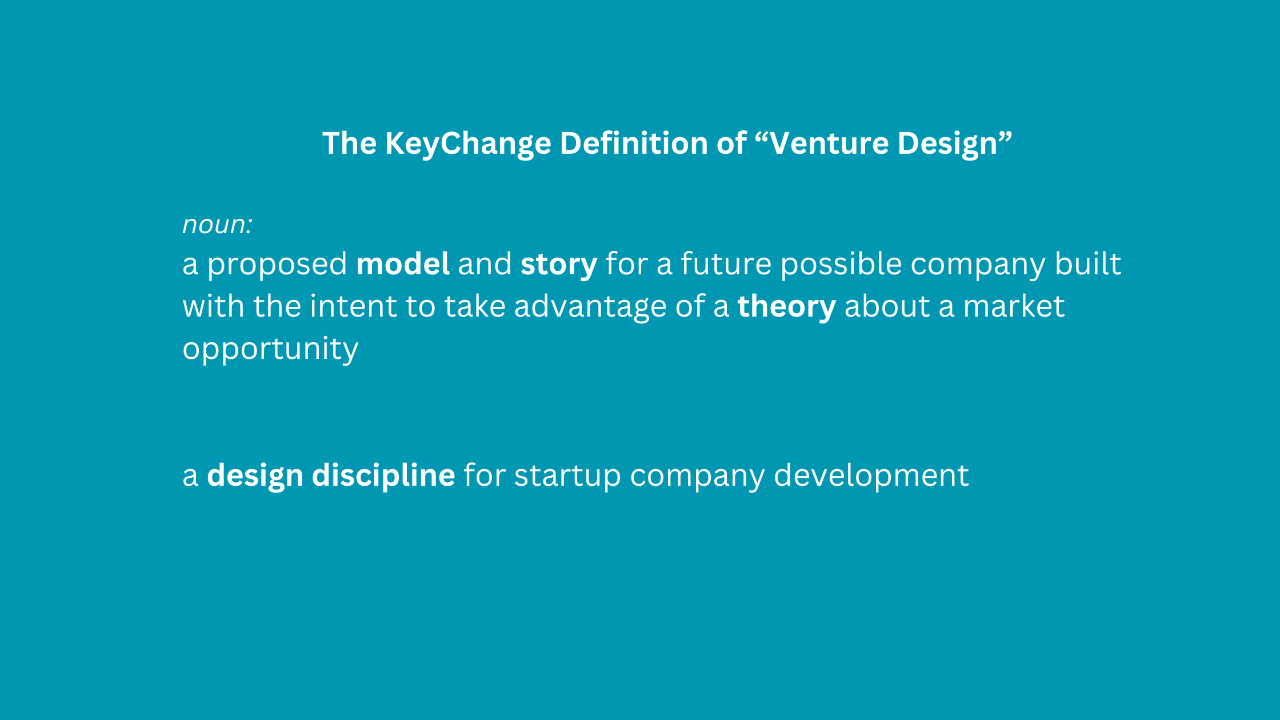
What is Venture Design?
Oct 16, 2024By Ada Ryland
Venture Design is the main job of the startup founder. Of course, founders also have other things to do, like make sales, raise money, and make hard decisions, but venture design is the work of "founding" a company.
Venture Design is about designing the company itself. I say this to distinguish it from other kinds of design involved in creating the company’s product or service. Venture design is not product design. The company is the thing that makes money from the product or service. The company is the thing that holds the value for investors.
Designing a company seems easy enough because people do it all of the time and have for centuries. How hard can it be?
The answer here is, depending on the type of company; it is much harder than you think.
It’s easy to start a laundromat, but that’s because it’s an established business model that serves a clear customer segment with clearly understood needs. There are proven best practices to follow. All of the venture design has been done for you by everyone else who has ever run a laundromat.
When you’re doing something no one has ever done before, you don’t know any of that. You have to create the right business model, find the right customer segment, and clearly understand what the customer wants and how to price it. Doing something new is hard, and that is why startups fail so often.
Eric Ries, author of The Lean Startup, defines a startup as: "a structure designed to create a new product or service under conditions of extreme uncertainty."
Extreme uncertainty is no joke. One thing that hit me recently is that the biggest difference between Venture Design and other kinds of design is the extreme uncertainty that founders face.
Even if you have chosen a fairly stable business model, the customer segmentation is probably new, which means the market definition is new. Along with that, the market that you are attempting to target is likely changing in real-time. The trajectory of innovation in most markets these days is crazy steep, making it very hard to position your company successfully, much less get the attention of your customers.
My point is that founding a startup is inherently risky.
The definition of venture:
noun - an undertaking involving chance, risk, or danger
verb - to proceed, especially in the face of danger
I am highlighting the danger to make the point that if you are a startup founder you are doing something very hard and very risky — and you need all of the help you can get. Bringing together "all of the help you can get" is what Venture Design is all about.
Let me explain:
Since designing a venture is a design effort, we need design thinking. The lean startup movement popularized an iterative learning process called “Build, measure, learn." Design thinking takes this much further and gives you more tools.
But we can get more help from other sources. We can use systems thinking because the business you are designing is a system inside another system of an ecosystem. We can use game thinking and complexity theory. We can use behavioral science, emotional intelligence, ontology, and precise language. We can use all kinds of thinking to gain new perspectives and yield unexpected insights.
Insights are the key. One insight into your situation can save you six months—or it might just save your entire venture.
Over the past 10 years, working with startup founders in the early stages and applying all of the tools and schools of thought I have gathered along the way, I have synthesized a fundamental framework for venture design. This framework acts like a foundation or scaffolding to begin organizing all of the thinking that shapes a company.
A venture design framework helps founders with the sheer volume of information they are processing and gives them a context to see it all more clearly. Not only does this help with prioritization and decision-making, it is a game-changer for getting your team, your partners, and your investors on the same page.
The main purpose of this article is to introduce a definition of venture design and suggest that it can help you be a better founder.
I want to leave you with the KeyChange definitions for venture design:
A venture design is...
a proposed model and story for a future possible company built with the intent to take advantage of a theory about a market opportunity
a design discipline for startup company development
You can learn more about venture design in our free class “Venture Design 101.”

